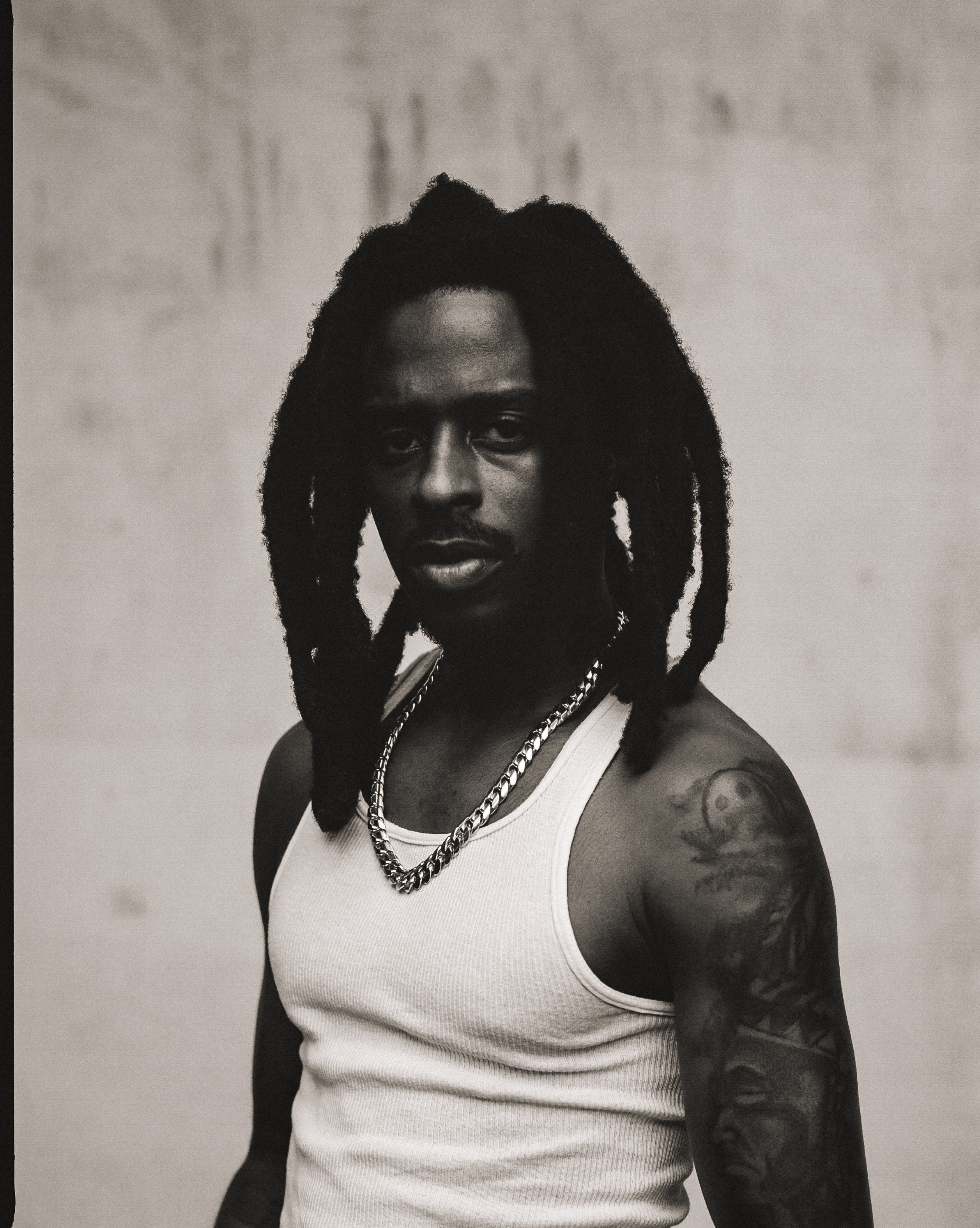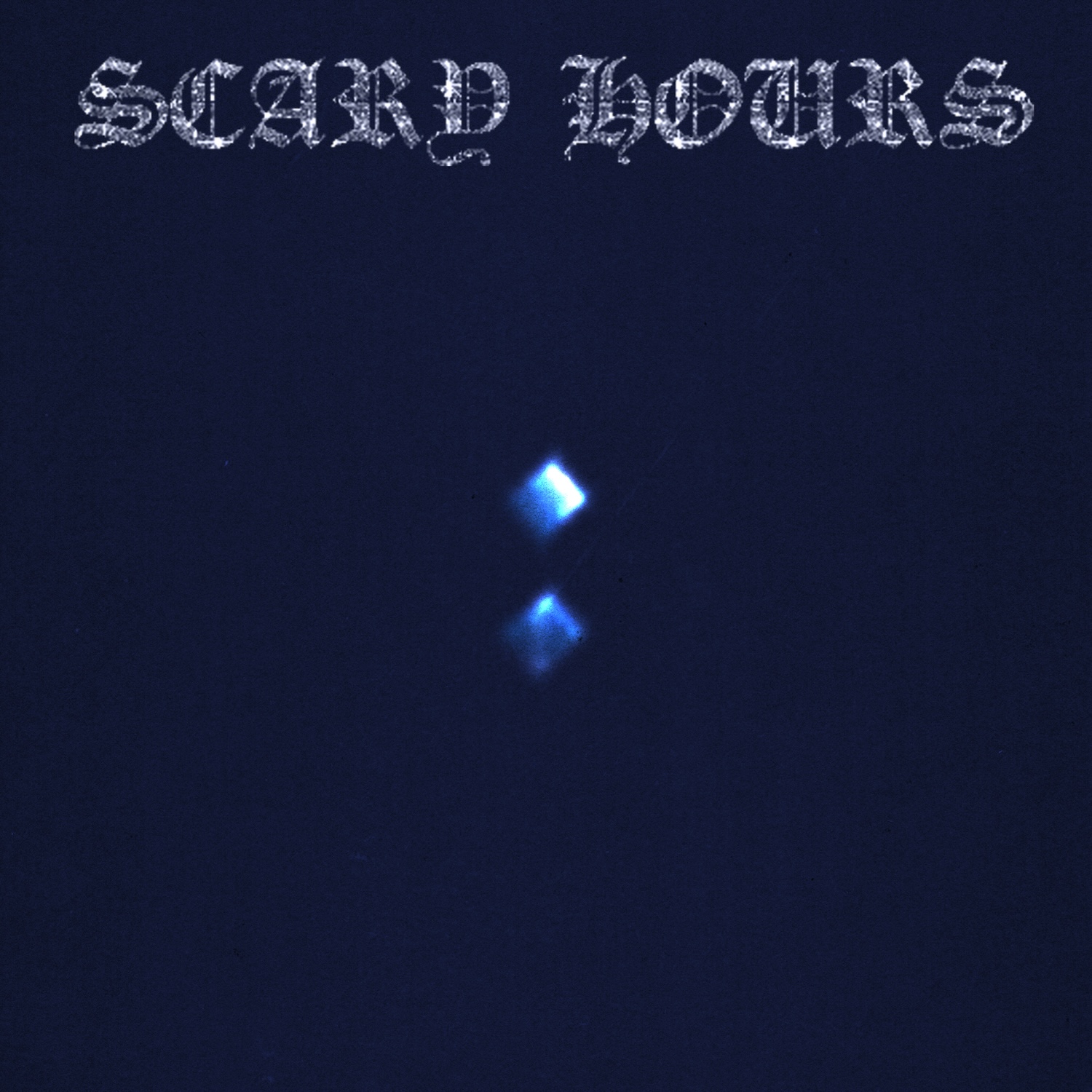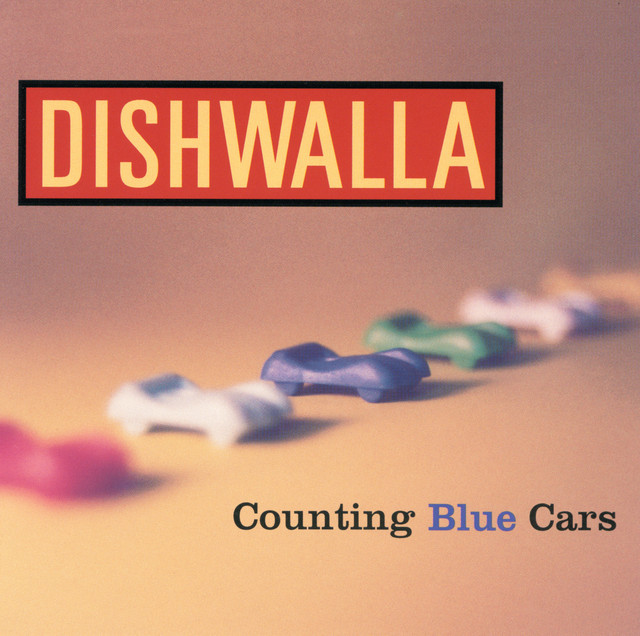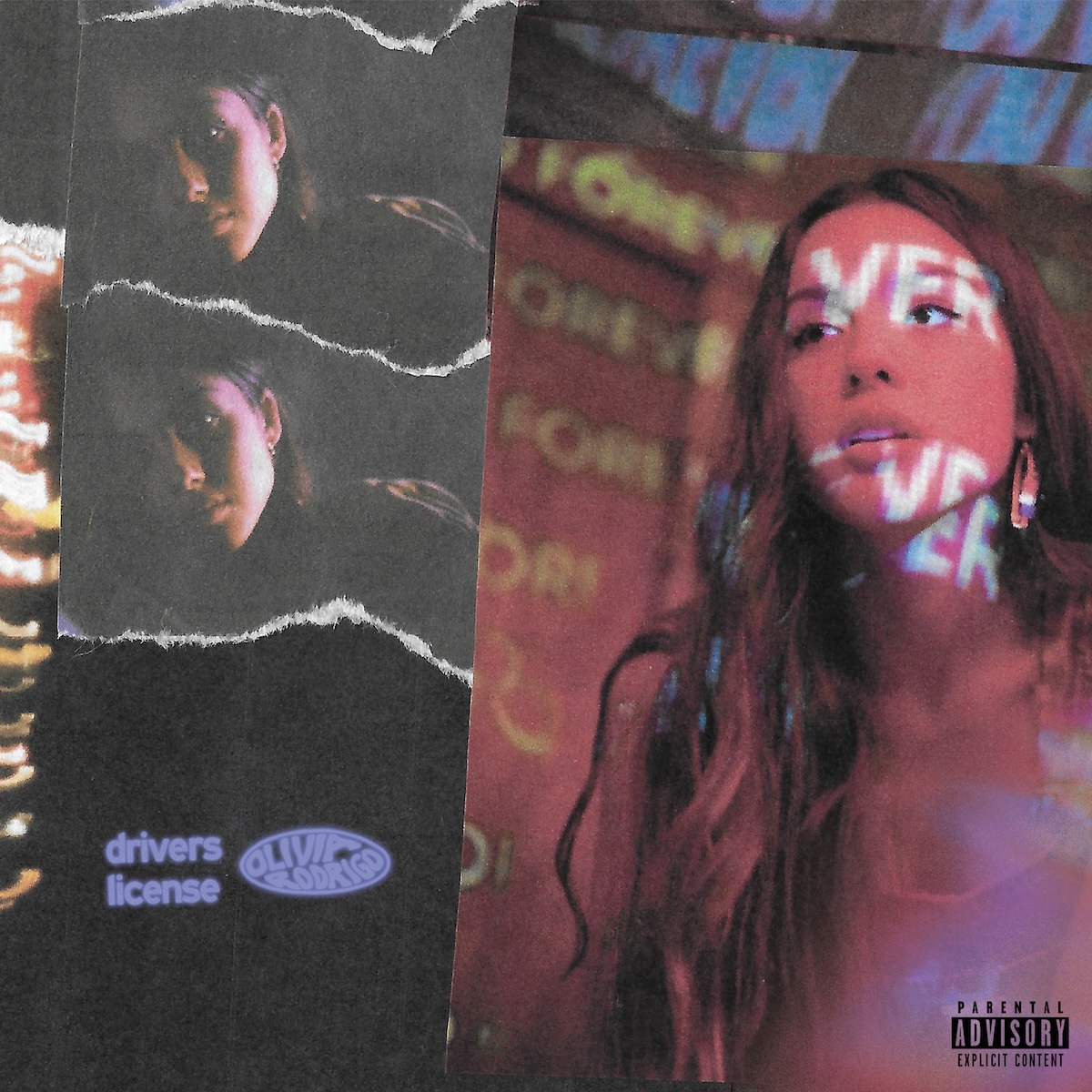Earlier this month, I saw a show that wasn't just a great night of live music, it was a model that other musicians, clubs and booking agents should emulate. I went down to Rockwood Music Hall, a venue on Allen Street in New York. It's literally across the street from an F train stop, so it's remarkably convenient. Rockwood has three stages in as many rooms; Stage 2, where I was, is the biggest of the three, I think, but none of the rooms are exactly cavernous.
Two excellent groups, both of which I've written about in this column before, were playing a co-headlining show. First up was pianist Aaron Parks' quartet Little, Big, whose self-titled debut album was released last year on Ropeadope. The band on record includes guitarist Greg Tuohey, bassist David Ginyard, and drummer Tommy Crane. Ginyard wasn't present at Rockwood -- his spot was held by a very tall young guy named Darryl Johns, who wore a sleeveless T-shirt and appeared to have a mullet.
Parks is a heavy-handed pianist with lots of rhythmic drive; he plays in an almost rock style, clanging out big chords as Crane hammers the drums. He had a small keyboard on top of Rockwood's Steinway, which he used to add proggy synth solos to a few pieces and one-finger drones to others. Some pieces were built around relentless ostinatos, his notes hovering suspensefully as the band marched forward. Tuohey plays a Fender Telecaster with a biting, distorted tone, and he has a witty and self-aware performance style -- he indulges in "guitar face," but more than that, he seems to be dancing with his instrument as he plays. Crane, as I mentioned, is a powerhouse drummer, who swings, but also batters the kit.
They only had 45 minutes, but while they played several pieces from the album (the opening "Kid," the closing "Doors Open," and "Digital Society," which featured stuttering bursts of electronics), they also made time to premiere two new pieces, "Hello Friend" and "Solace." Both were really good, which makes me hope there'll be a second album soon. The title of "Hello Friend" is a good reflection of the prettiness-with-bite formula behind Little, Big's music; it seems like a nice phrase, until you remember that Bill Cosby used to wear a sweatshirt with those words printed on the front.
The second band on was flugelhornist John Raymond's trio Real Feels. I've been a fan of Raymond's for a while; I interviewed him last year and I think Real Feels is one of the most interesting bands around right now. In addition to Raymond, the group features Gilad Hekselman on guitar and Colin Stranahan on drums, and they've made four albums to date -- a self-titled 2016 debut, 2018's Joy Ride, and two live albums simply titled Live Vol. 1 and Live Vol. 2.
Their music is often softer and more introspective than Little, Big's, but they can get plenty loud when they want to. Raymond's flugelhorn has a loose, full sound, and he plays through echo and reverb at times, making his lines misty and dreamlike. Hekselman is a co-lead voice sometimes, a bassist other times; he uses a lot of pedals, too, creating wild and unexpected sounds before dropping into a piercingly clean melody. Stranahan mostly has a light, skipping rhythm -- he has a way of making it seem like he's missed a beat, but is still keeping the song together.
As on their albums, they combined original pieces with covers of indie rock songs; their version of Thom Yorke's "Atoms For Peace," a fixture of their live sets, was a highlight. They also premiered a new song, "Where We Grew Up," which Raymond said was inspired by driving back and forth between Minnesota and Wisconsin. It shimmered, unfolding slowly like a journey through snowy woods, with big dubby drums to help it hold the road. Parks joined them for the last song of their 45-minute set, a version of "Minor Silverstein," by bassist Chris Morrissey. Parks had played on the original recording of the piece, on Morrissey's 2013 album North Hero, so he fit in perfectly, and the piece was a perfect closer to the set, and the night.
As I said up front, this wasn't just a good show, it was a model to be emulated. These two bands had enough in common aesthetically to fit together really well; audiences got to see two conveniently short sets for one ticket price; and there was even an element of collaboration, making it a unique event. There are plenty of young jazz acts that may not be able to fill a room on their own, but pair two of them up and you've got a show. More of this, please.
Alto saxophonist Remy Le Boeuf is best known as one of the Le Boeuf Brothers, along with pianist Pascal. They've been making albums together for about a decade, and Pascal has released a few on his own -- now it's Remy's turn. Light As A Word will be out next month; it features Walter Smith III on tenor sax, Aaron Parks on piano, Charles Altura on guitar, Matt Brewer on bass, and Peter Kronreif on drums. We're premiering a video for "Imperfect Paradise," the album's fourth track. It's a slowly unwinding piece with a lengthy melody, handled by the two saxophones, on which Parks plays electric piano and Altura takes a heavily treated solo. Watch it below:
The Art Ensemble Of Chicago, We Are On The Edge (Pi Recordings)
The Art Ensemble of Chicago are celebrating their 50th anniversary this year with a massive -- in multiple senses -- double CD. The first disc is a studio session that features a total of 17 musicians, led by the last two surviving members of the original group, saxophonist Roscoe Mitchell and percussionist Famoudou Don Moye. The second is a live concert from Ann Arbor, Michigan, the site of one of the group's greatest albums, 1973's Bap-Tizum. The expanded lineup is roughly one-third female, including flutist Nicole Mitchell, violinist Jean Cook, cellist Tomeka Reid, bassist Silvia Bolognesi, vocalist and multi-instrumentalist Christina Wheeler, and most strikingly, vocalist/poet Camae Ayewa, aka Moor Mother. Before he became a Buddhist priest, the late Joseph Jarman was frequently a channel for the Art Ensemble's political side, and she steps into that role on three tracks here, including "Mama Koko," on which she demands, "Teach us our language...from the Congo to the Carolinas...Show me my mother's face...Tell me my father's name...Take me back to my homeland," over a shimmering rhythmic bed of mbira, bells, and percussion.
Stream "Mama Koko":
Wynton Marsalis, Bolden (Original Soundtrack) (Blue Engine)
Cornet player Buddy Bolden is a legendary figure in New Orleans jazz history. He led a popular band in the early 1900s, but they never recorded (or, if they did, the cylinders have long since been lost), and in 1907 he suffered an attack of alcoholic psychosis which led to his being diagnosed with schizophrenia and housed in the Louisiana State Insane Asylum, where he remained until his death in 1931. Still, firsthand recollections of his music became part of jazz lore and were passed down, and now there's a movie about his life, for which Wynton Marsalis and his band have recorded the soundtrack. Marsalis, himself a New Orleans native, is pretty much the ideal choice for this; his rich, full trumpet sound is perfect for the straightforward, bluesy melodies of these songs, and his solos are virtuosic without being tricky. Some of the tunes on the album were written by Bolden, or associated with him, while others, like "You Rascal You," were popular at the time and still get played today. (It's better known as "I'll Be Glad When You're Dead (You Rascal You)," and it's been recorded by Louis Armstrong, Louis Prima, and about eight thousand other people.)
Stream "You Rascal You":
Kendrick Scott Oracle, A Wall Becomes A Bridge (Blue Note)
Drummer Kendrick Scott's second album as a leader features his long-standing band Oracle (saxophonist John Ellis, guitarist Mike Moreno, pianist Taylor Eigsti, and bassist Joe Sanders), plus one new addition, turntablist—wow, I haven't typed that word in a while—Jahi Sundance. His contributions to ">>>>>>>>>>>Mocean" (the weird formatting of the title is because the album is supposed to be a journey backward from end to beginning, counting down from 12 to 1) are minimal, just a few atmospheric noises at the end. The rest of the band is in a groove that swings, but also has an almost disco thump keeping it locked in and moving forward. Ellis's soloing is meditative, almost Quiet Storm-ish, while Moreno and Eigsti spin out slow extrapolations of a nice melody.
Stream ">>>>>>>>>>>Mocean":
Iro Haarla, Around Again (TUM)
Finnish pianist and self-taught harpist Iro Haarla spent twenty years performing the music of her husband, drummer Edward Vesala. It was only after his death in 1999 that she began writing and recording her own compositions. She's made three albums for ECM, all of which showcase her slow, beautiful jazz/classical hybrid music (2016's Ante Lucem paired her quintet with an orchestra). On this album, her fifth for the TUM label, she's back playing the role of interpreter, but now she's tackling the work of fellow pianist and composer Carla Bley, joined by her (Haarla's) longtime bassist Ulf Krokfors and drummer Barry Altschul, who recorded many of these pieces with Bley's husband Paul's group decades ago. The opening track, "Closer," begins with individual notes pealing out and decaying with incredible slowness. After a moment, Altschul announces himself with soft cymbal taps and brief rolls, and Krokfors arrives slowly, like a man creeping through a room. The piece comes together with the extraordinary patience that's always been Haarla's trademark, the drums tumbling and punctuating but never driving and the bass a melodic throb.
Stream "Closer":
Herlin Riley, Perpetual Optimism (Mack Avenue)
Drummer Herlin Riley has been anchoring the Lincoln Center Jazz Orchestra, and Wynton Marsalis's bands generally, for a long time. He's also recorded with pianists Marcus Roberts and Ahmad Jamal, guitarist George Benson, singer Dianne Reeves, and many others. This is his third album as a leader, and his second with the same band: trumpeter Bruce Harris, alto saxophonist Godwin Louis, pianist Emmett Cohen and bassist Russell Hall. Riley's blend of swinging hard bop timekeeping and bouncing New Orleans rhythms gives the punchy melody of the album's opening track, "Rush Hour," a fierce energy that seems to jump higher each time one of the horns takes a solo, and the emphatic handclaps from the ensemble don't hurt.
Stream "Rush Hour":
Bill Frisell/Thomas Morgan, Epistrophy (ECM)
I promised the guy who was hyping this album to me that if I could stay awake all the way through it, I'd include it in this month's column. Well, here it is. I like Bill Frisell a lot in some contexts, and not at all in others. (There's a pretty good new documentary about him floating around; check it out if you're a fan.) This is a live album of duos with bassist Thomas Morgan, on which they play a couple of Thelonious Monk tunes -- the title track, and "Pannonica" -- some old pop standards like "Save The Last Dance For Me" and "In The Wee Small Hours Of The Morning," and one surprise: John Barry's theme to the James Bond movie "You Only Live Twice." It's mostly as slow and atmospheric as the rest of the album, Frisell pinging out notes as Morgan thumps along beside him, but the guitarist gives the melody a nice hillbilly feeling.
Stream "You Only Live Twice":
Sick Gazelle, Odum (War Crime Recordings)
Sick Gazelle is a strange little one-off project from saxophonist/singer Bruce Lamont, formerly (I'm pretty sure they've broken up) of Yakuza, guitarist Eric Block, and of all people drummer Steve Shelley, formerly of Sonic Youth. Lamont and Block started Sick Gazelle as an improvisatory duo project, and when Shelley booked some time in the studio Block managed, they roped him into joining them. The results are a kind of semi-ambient psychedelic dub-jazz; Block's guitars are fed through such heavy effects that they're often more like synth drones. Shelley's rhythms are tribal and endless, while Lamont's saxophone floats through swathed in foggy reverb. The first "single" from this four-track, 36-minute album is the 10-minute "Atlantic," on which the beat recalls Sonic Youth tunes like "Shadow Of A Doubt," as the saxophone dissolves in and out of static like it was recorded over a shitty land line connection, and the guitar peals and wavers. Honestly, this album has as much in common with Tony Conrad and Faust's Outside The Dream Syndicate as it does with "jazz," but it rules.
Stream "Atlantic":
Angelika Niescier, New York Trio (Intakt)
Last year, saxophonist Angelika Niescier released The Berlin Concert, a raucous and unfettered trio session with bassist Chris Tordini and drummer Tyshawn Sorey. This semi-sequel features Tordini again, but Gerald Cleaver's behind the kit this time, and trumpeter Jonathan Finlayson has been added to the lineup. Niescier and Finlayson lock in side by side for tightly configured melodies, but their solos are exploratory and fanfare-like at once, and the rhythm section is every bit as explosive as that on The Berlin Concert; Cleaver's snare and tom work can be as avalanche-like as Elvin Jones', but he can also be as crisp and precise as Max Roach at times. On the opening "The Surge," the staccato blasts of the horns are matched in speed and deftness by the drums, every step of the way. It's a ridiculously high-energy, intricate performance that sets the tone for a rocket ride of an album.
Stream "The Surge":
Malin Wättring 4, Live In Hamburg (Havtorn)
Swedish saxophonist Malin Wättring has been a member of some really interesting bands, including fellow saxophonist Anna Högberg's all-female sextet Attack and Mats Gustafsson's Fire! Orchestra. She's led her own quartet with pianist Naoko Sakata, bassist Donovon von Martens, and drummer Anna Lund for several years; this is their third album, but the first to feature only the core group. On their debut, they expanded to an octet for half the tracks, and after that, they made a big band record. Live In Hamburg is deceptively titled, in that it's not a concert recording but a live-in-the-studio session. The pieces can be quite long; "Allegra," the album's second track, is one of three that run more than 11 minutes. Given that much time to build, it naturally turns into something quite impressive, all four bandmembers locking together into a pulsing, swinging groove atop which Wättring heads out in a tightly knotted, Joe Henderson-esque style, as Sakata's piano recalls McCoy Tyner and Matthew Shipp in equal measure, and von Martens and Lund rattle and boom.
Stream "Allegra":
Cykada, Cykada (Astigmatic)
Another month, another killer record from London. Cykada is a sextet featuring trumpeter Axel Kaner-Lindstrom, saxophonist James Mollison, guitarist Javi Pérez, bassist Jamie Benzies, drummer Tim Doyle, and Tilé Gigichi-Lipere on electronics. Some of these guys are also in other excellent groups like Maisha and Ezra Collective. Their self-titled debut is a hard-charging blend of pumping solos, and driving, clattering beats, with Gigichi-Lipere's synths and other sounds filling in the cracks and holding it all together. On "Dimension Stepper," Mollison's saxophone solo is raucous and raw, while the two-horn melody has an almost Afrobeat sound, and Pérez's guitar gets loud as hell at times, and Doyle's drumming is positively metallic.
Stream "Dimension Stepper":
Loren Connors & Daniel Carter, The Departing Of A Dream, Vol. VII (Family Vineyard)
Guitarist Loren Connors' The Departing Of A Dream series of albums are his attempts to grapple with and reinterpret a truly extraordinary piece of music: Miles Davis's "He Loved Him Madly," the album-side-long opener to 1974's Get Up With It. A tribute to the then recently deceased Duke Ellington, the original is like a cloud of sorrow hovering in the middle of whatever room you play it in; organ drones, bass booms, gently tapped drums, and softly rumbling congas all murmur and hum for over 32 minutes. Miles himself barely plays. It's astonishingly beautiful, but one of the most emotionally overwhelming pieces in the Davis catalog, a real jewel of his 1970s output. On this latest volume in the series, Connors interacts ("duets" is the wrong word) with multi-instrumentalist Daniel Carter, who plays trumpet and saxophone as the guitarist creates storm clouds of heavily reverbed chords.
Stream "Dreaming":
Dan McCarthy, Epoch (Origin)
Vibraphonist Dan McCarthy's Epoch is a short, dreamlike record: six tracks in just 33 minutes, played by a quartet that includes violinist Mark Feldman, guitarist Ben Monder, and bassist Steve Swallow...and no drummer. This is chamber jazz for sure, somewhat reminiscent of the Modern Jazz Quartet in the way it slowly ripples along and focuses as much on beauty as improvisatory intricacy -- several of the pieces are variations on a simple riff or melody. But this has more bite than lots of chamber jazz, because Feldman and Monder are players who naturally gravitate toward sharp edges. Even when he's keeping things under relatively tight control, the guitarist still lets little bursts of feedback or distortion slip in, and Feldman's violin solo on "Softly She Sings Her Song" has a deeply melancholy, almost funereal mood. When they're cutting loose, McCarthy himself will frequently step back, turning the ensemble into a string trio; then he comes back in to anchor it all.
Stream "Softly She Sings Her Song":
Gwilym Simcock, Near And Now (ACT)
Gwilym Simcock (and yes, I did triple check the spelling of his name) is a British pianist who's achieved a lot of recognition over there -- his 2011 album Good Days At Schloss Elmau was nominated for the Mercury Music Prize (PJ Harvey's Let England Shake won) -- but is relatively unknown here. His music hovers on the border between jazz and classical, tipping in one direction or the other depending on his mood or the commission. His US profile may rise soon, though, since he's joined guitarist Pat Metheny's new band, with bassist Linda May Han Oh and drummer Antonio Sanchez. They've recorded an album that will be out next year. This solo disc is composed of two three-part suites and three shorter, individual tracks, each of them dedicated to an influence. Les Chisnall, to whom the gentle "You're My You" is dedicated, was one of the teachers who introduced Simcock to jazz. The piece is a simple, spare ballad, almost a folk melody, less than three minutes long.
Stream "You're My You (For Les Chisnall)":
Patrick Cornelius, This Should Be Fun (Posi-Tone)
Alto saxophonist Patrick Cornelius's latest album -- his sixth, I think, and his second for Posi-Tone -- features trombonist Nick Vayenas, pianist John Escreet, bassist Ben Allison, and drummer Mark Ferber. Cornelius and Vayenas have played together on several of the saxophonist's previous albums, and one under the trombonist's name. Cornelius is a pretty conventional, bebop-derived player, and this is a straightforward, swinging album. Escreet is weirder when left to his own devices, but here he holds back, sticking to the chords and keeping everyone in line. "Telescope" is a good example of what the band does; after a quick fanfare, Vayenas takes an expressive, upbeat solo with Ferber's encouragement and Allison's support. When the leader steps in, his solo has some bite, especially when he falls into the alto's low end, but his focus is on quick-witted melodic invention.
Stream "Telescope":
Ilmiliekki Quartet, Land Of Real Men (We Jazz)
Ilmiliekki Quartet were one of the first jazz groups to break out of Finland in the early 2000s, but they haven't made an album under their own name in 13 years. (They have made two albums as Swedish singer Emma Salokoski's backing band.) The group includes trumpeter Verneri Pohjola, pianist Tuomo Prättälä, bassist Antti Lötjönen, and drummer Olavi Louhivuori. Pohjola is a star on his own, Lötjönen plays with multiple groups, and Louhivuori is in the post-rock group Oddarrang and played with the late Polish trumpeter Tomasz Stanko. Together, though, they've got an energy that none of their other ensembles conjure. I wish I could share with you the awesomely weird version of Laurie Anderson's "O Superman" that opens this album, but it's not streaming yet. Instead, I'll tell you about "Ravelogue." Beginning with a quick ripple across the piano keys, followed by delicate single notes and carefully spaced bass booms. After a minute or so, Pohjola enters, his hissing, loose-lipped trumpet style reminiscent of Supersilent's Arve Henriksen. It's a slow, gentle piece, subdued but just suspenseful enough to keep you listening -- which is sort of what these guys do in general.
Stream "Ravelogue":






